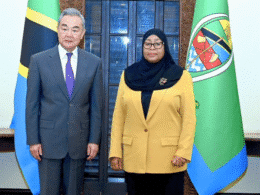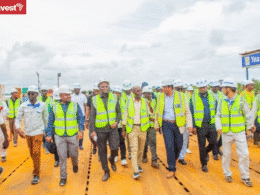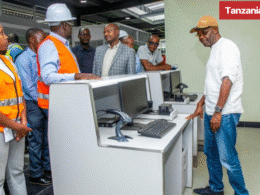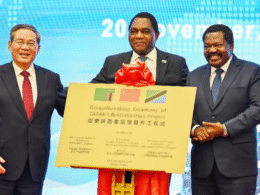TanzaniaInvest interviewed Suleiman Suleiman, Acting Director General of the Tanzania Airport Authority (TAA) and he shared insightful details on Tanzania’s civil air transport industry and the available investment opportunities.
TanzaniaInvest.com : Mr Suleiman, thank you for your time. Please clarify with us what is going on in your sector, the role and duties of Tanzania Airports Authority and the role of foreign direct investors in this development?
Suleiman S Suleiman : There is a very simple demarcation between TCAA (Tanzanian Civil Aviation Authority) and Tanzania Airports Authority. We are the airport operators and Tanzanian Civil Aviation Authority is the regulator. That is the simple definition.
TI : Which means that new carriers will go to the TCAA regulatory authority while cargo handling and airport operation are under your authority?
SS : Yes, exactly. As a regulator of air transport in Tanzania, Civil Aviation is in charge of regulating Tanzania airport activities, airline operator activities, ground-handling operations, inflight kitchen operations and so forth. We are in compliance with this.
TI : Speaking of airports, what is the current air traffic situation in Tanzania? What are the estimates?
SS : Strictly speaking, the air traffic growth in Tanzania is growing at 20% average per year. The airports under my umbrella are averaging growth at 20% per annum. This is very interesting.
TI : What is the source of such growth?
SS : Initially the international movement was growing faster than domestic. Though, just last year the profile and landscape has changed. Now the domestic air scene is growing rapidly. The reason is simple. The middle-class in this country is growing at 1% per annum, so if we have a population of 45 million people it translates to 450 000 people moving from lower than average to average living standards. Now they fly at least once a year. So the future is very good and the sky is the limit.
TI : Today with the current demand for air transport in Tanzania, is the air infrastructure adequate?
SS : It is not adequate. The current cost of air ticket is very expensive. I believe that this will change in the next 2 to 3 years.
TI : How will this change?
SS : The operating costs of aircrafts on gravel runways are double the costs than paved runways. The airline operators spend more on landing and take off on these runways. So now we have a vision to replace all regional airports with asphalt, with paved runways and other time effective services. This will result in cost-effective airline operation and air ground lighting systems will open up more time operating hours for the airline. {xtypo_quote_right} we have a vision to replace all regional airports with asphalt, with paved runways {/xtypo_quote_right}
TI : How many airports are now paved?
SS : Right now it is 11 out of 58. Within a very short period we have done many airports in Tanzania. These are: Dar es Salaam, Kilimanjaro, Arusha, Mwanza, Tabora, Kigoma, Bukoba, Tanga, Mafia, Mpanda, Songwe.
TI : How is this ambitious project being financed?
SS : It is being financed by 4 types of financing that we normally work with: concessional financing from multilateral organizations like World Bank, grants combined with commercial loans, financing from Export Credit Agencies – a modern approach to financing which we will use for Terminal 3 in Dar es Salaam – and financing from Central Government.
TI : If you look at five year terms, what are the estimates on aviation traffic in Tanzania?
SS: We are close to 4 million passengers in Tanzania. Dar es Salaam is 2 million by itself that includes Zanzibar and Kilimanjaro. Under this growth we are bound to reach 8 million in 5 years. There is tremendous opportunity in the Aviation in Tanzania.{xtypo_quote_left}We are close to 4 million passengers in Tanzania. […] we are bound to reach 8 million in 5 years.{/xtypo_quote_left}
TI : At the end of 2012 you opened the fourth International Airport in Tanzania. So now you have Kilimanjaro, Dar es Salaam, Mwanza and now Songwe. Are you looking at opening new International Airports in the country?
SS : If you go by National Public Transport policy, all airports that border with neighboring countries will be International. So ultimately, we are sharing borders with 7 countries and we should not be surprised to see all these airports as International.
TI : It sounds like Tanzania is supposed to be a regional hub. Why should Tanzania become a hub instead of other regional countries?
SS : There are business models in the airport industry ; Destination and Hub. London is a destination airport. Amsterdam is a hub. Tanzania is a destination airport. Dubai is a Hub, 90% of passengers transit through Dubai and do not stay. In the UK, most are staying longer. Tanzania is a destination, most people stay. Once we have a stronger airline then we will make it into a Hub.
TI : Does the fact that you need to fly through hubs to reach Tanzania may undermine the International Business here?
SS : No, it will not undermine International Business in Tanzania. It is a business case. People are doing good business in Tanzania so that is why they come here, this is what the data shows.
TI : There is a newcomer, FastJet, which is going to be a regional carrier. Do you foresee other airline carriers entering Tanzania in the next few years?
SS : Off course. Business is booming. Air transport has become order of the day. There are massive investment opportunities in Tanzania.
TI : What are the investment opportunities in Tanzania in air transport?
SS : The investment opportunity in Tanzania is wide. There are different areas. With Airports, it is a mini city. People are looking for conferences, accommodation, shopping and hotels. So with this expansion you can attract any kind of investment. There is also a provision to run these airports for the private sector.
TI : Are you actively looking to give these provisions to the private sector?
SS : Yes, off course. If we are going to get a good package, why not? It is not only a case of financing but expertise. Someone can make an airport better and compete with others.
TI : To this regard, why did Kilimanjaro Airport was transfer red back to TAA?
SS : It is quite interesting. The government was eager to work with private sector. But what we have learned if we want to run an airport it has to be run by an airport operator, professionally. It was not the case with Kilimanjaro. The shareholders decided to sell their shares and the government willingly bought back the shares. So now we are looking for a sound operator to run Kilimanjaro. We are ready to release it.{xtypo_quote_left}we are looking for a sound operator to run Kilimanjaro [airport].{/xtypo_quote_left}
TI : What are the benefits? Why should someone be interested in this market in particular? Why Tanzania?
SS : There is good growth. Middle class is growing. Tanzania is peaceful. It is a sleeping giant. You cannot go wrong with investing in Tanzania.{xtypo_quote_right}You cannot go wrong with investing in Tanzania.{/xtypo_quote_right}
To know more about investing in Tanzanian Airport infrastructure with TAA follow the link : http://tanzaniainvest.com/exchange/user/6003-taa












